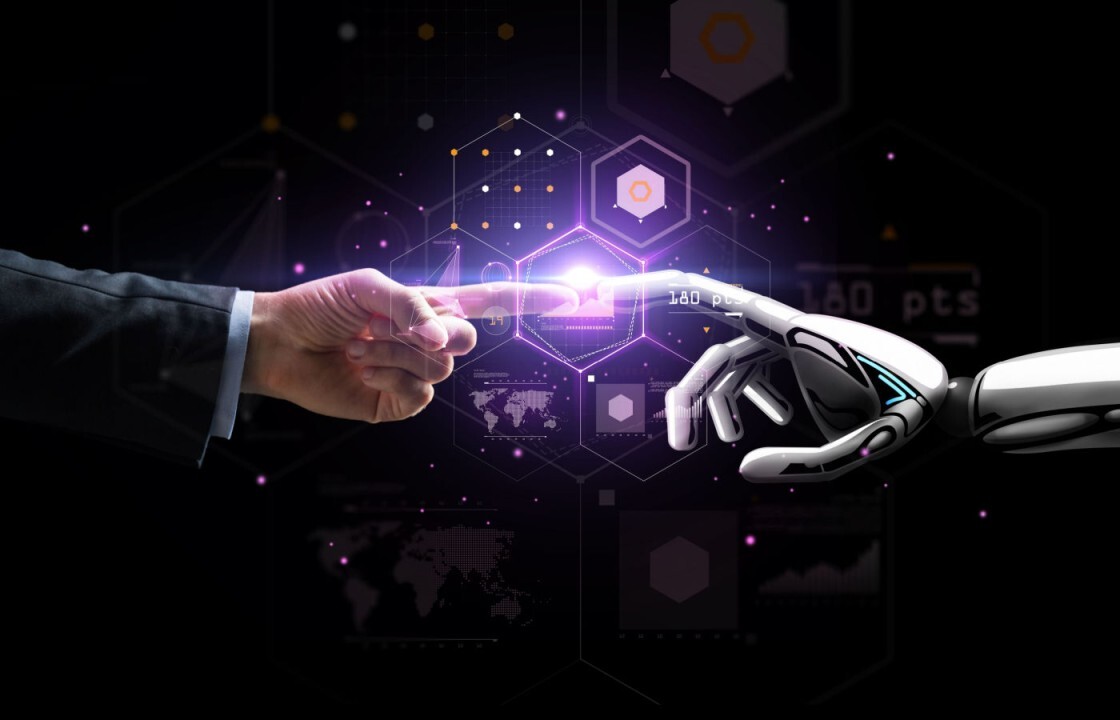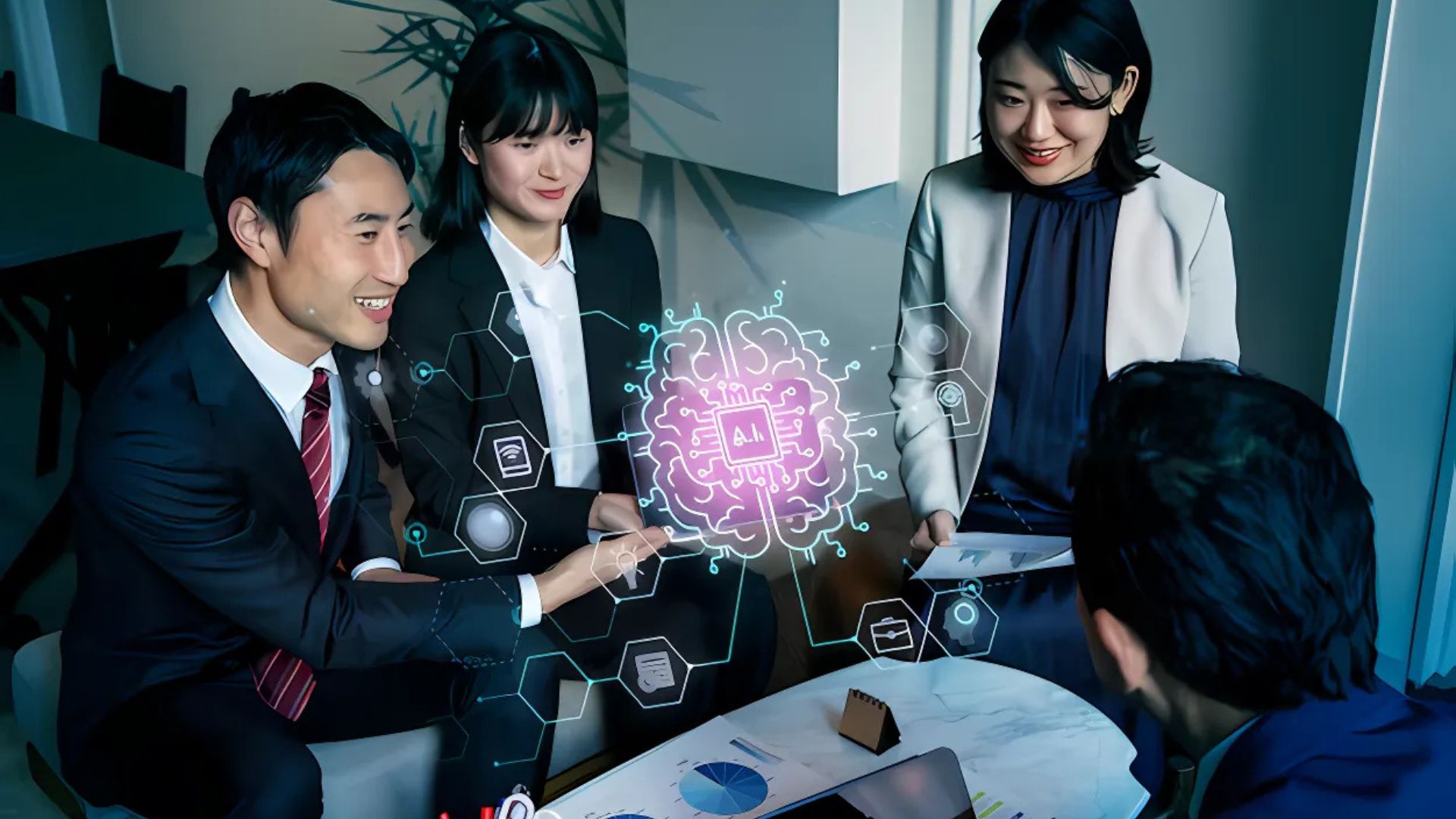
Related Articles

IT Outsourcing
RSK BSL Tech Team
May 23, 2025
|
|

AI Tech Solutions
RSK BSL Tech Team
May 19, 2025
|
|

Software Development
RSK BSL Tech Team
May 16, 2025
|
|

Software Development
RSK BSL Tech Team
May 13, 2025
|
|

IT Outsourcing
RSK BSL Tech Team
May 4, 2025
|
|

Mobile Application Development
RSK BSL Tech Team
April 30, 2025
|
|

Software Development
RSK BSL Tech Team
April 27, 2025
|
|

Hire resources
RSK BSL Tech Team
April 24, 2025
|
|

Software Development
Praveen Joshi
April 20, 2025
|
|

Artificial Intelligence
Praveen Joshi
April 17, 2025
|
|

Pen Testing
Praveen Joshi
April 15, 2025
|
|

AI Tech Solutions
RSK BSL Tech Team
April 14, 2025
|
|

Software Development
RSK BSL Tech Team
April 9, 2025
|
|

Pen Testing
RSK BSL Tech Team
April 7, 2025
|
|

Software Development
RSK BSL Tech Team
April 3, 2025
|
|

Cloud Application
RSK BSL Tech Team
March 31, 2025
|
What industries benefit the most from partnering with AI companies?
Did you know that by 2030, artificial intelligence businesses are expected to add more than $15.7 trillion to the global economy? This staggering figure highlights the transformative power of AI across various sectors, revolutionising the way businesses operate and innovate.
In this blog, we’ll delve into how industries such as healthcare, finance, retail, and transportation are reaping significant benefits from partnering with Artificial Intelligence companies. By leveraging AI technologies, these industries are not only enhancing operational efficiency and improving customer experiences but also driving unprecedented levels of innovation and growth.
Industries benefit most from AI
1. Healthcare
Artificial intelligence is revolutionising the healthcare industry by enhancing the accuracy, efficiency, and personalisation of medical services. AI technologies are being integrated into various aspects of healthcare, from diagnostics to administrative tasks, leading to improved patient outcomes and streamlined operations.
Key Benefits:
- Diagnostics and Imaging: AI algorithms can analyse medical images with high accuracy, often surpassing human capabilities. These algorithms may detect anomalies in X-rays, MRIs, and CT scans, allowing for earlier diagnosis and treatment of diseases like cancer and neurological problems.
- Personalised Medicine: AI helps in creating tailored treatment plans based on patient data, including genetic information, lifestyle, and medical history. This customised approach guarantees that patients receive the most effective medications with the fewest adverse effects.
- Drug Discovery: AI accelerates the process of finding new drugs by analysing vast amounts of data to identify potential drug candidates. This reduces the time and cost associated with traditional drug discovery methods, bringing new treatments to market faster.
- Administrative Efficiency: AI automates routine administrative tasks such as scheduling appointments, billing, and managing patient records. This lessens the workload for medical personnel, freeing them up to concentrate more on patient care.
Examples: Companies like DeepMind and Tempus are at the forefront of AI in healthcare. DeepMind’s AI technology has made significant advancements in medical imaging and diagnostics, while Tempus uses AI to analyse clinical and molecular data to provide personalised treatment recommendations.
2. Finance
The finance industry is leveraging artificial intelligence to enhance security, optimise trading, and improve customer service. AI technologies are transforming financial services by providing advanced tools for fraud detection, trading, and customer interactions, leading to more efficient and secure financial operations.
Key Benefits:
- Fraud Detection: AI systems can detect fraudulent activities in real-time by analysing transaction patterns and identifying anomalies. These systems use machine learning algorithms to continuously improve their accuracy, helping financial institutions prevent fraud and protect their customers.
- Algorithmic Trading: AI algorithms optimise trading strategies by analysing vast amounts of market data and executing trades at high speeds. These algorithms can identify profitable trading opportunities and make split-second decisions, giving traders a competitive edge in the market.
- Customer Service: AI chatbots and virtual assistants improve customer interactions by providing instant responses to queries and performing routine tasks. These AI-powered tools can handle a wide range of customer service functions, from answering frequently asked questions to processing transactions, enhancing the overall customer experience.
Examples: Companies like JPMorgan Chase and Goldman Sachs are using AI for predictive analytics and risk management. JPMorgan Chase’s COiN (Contract Intelligence) technology analyses legal papers and extracts key data, whilst Goldman Sachs use AI algorithms for trading and investment strategies.
- Retail and E-commerce
Artificial intelligence is significantly enhancing the retail and e-commerce sectors by providing personalised shopping experiences, optimising pricing strategies, and improving inventory management. AI technologies are helping retailers understand customer preferences, streamline operations, and stay competitive in a rapidly evolving market.
Key Benefits:
- Personalised Recommendations: AI provides tailored product suggestions by analysing customer behaviour, purchase history, and browsing patterns. This personalisation increases customer satisfaction and boosts sales by recommending products that are most likely to interest individual shoppers.
- Dynamic Pricing: AI quickly modifies prices in response to competition, demand, and other market variables. This dynamic pricing strategy helps retailers maximise profits and remain competitive by offering the best prices to customers at the right time.
- Inventory Management: AI optimises stock levels and supply chains by predicting demand and managing inventory more efficiently. This reduces overstock and stockouts, ensuring that products are available when customers need them and minimising storage costs.
Examples: AI is being used by businesses like Amazon and Walmart to improve their retail operations. Amazon uses AI for personalised recommendations, dynamic pricing, and efficient inventory management. Walmart employs AI to optimise its supply chain, improve customer service, and enhance the overall shopping experience.
4. Transportation and Logistics
Artificial intelligence is transforming the transportation and logistics sectors by enhancing the efficiency, safety, and reliability of operations. AI technologies are being integrated into various aspects of transportation and logistics, from autonomous vehicles to warehouse management, leading to significant improvements in service delivery and cost reduction.
Key Benefits:
- Autonomous Vehicles: AI powers self-driving cars and trucks, which can operate with minimal human intervention. These autonomous vehicles use advanced sensors and machine learning algorithms to navigate roads, avoid obstacles, and make real-time decisions, improving safety and reducing the need for human drivers.
- Route Optimisation: AI improves delivery routes by analysing traffic patterns, weather conditions, and other factors to determine the most efficient paths. This optimisation reduces fuel consumption, delivery times, and operational costs, enhancing overall logistics efficiency.
- Warehouse Automation: AI enhances efficiency in warehouses by automating tasks such as sorting, packing, and inventory management. AI-powered robots and systems can perform these tasks faster and more accurately than humans, reducing errors and increasing productivity.
Examples: Leading companies in the use of AI in logistics include Tesla and UPS. Tesla’s autonomous vehicles are revolutionising transportation with their self-driving capabilities, while UPS employs AI for route optimisation and warehouse automation to streamline its logistics operations.
Successful AI Partnerships
- Schneider Electric: Energy Management Transformation Schneider Electric partnered with AI companies to revolutionise their energy management systems. By integrating AI-driven predictive analytics, they were able to optimise energy consumption, reduce costs, and enhance sustainability efforts. This partnership has led to significant improvements in operational efficiency and environmental impact.
- LG Electronics and Microsoft: Healthcare Transformation LG Electronics collaborated with Microsoft to develop AI solutions for the healthcare sector. Their AI-powered systems assist in medical imaging and diagnostics, improving accuracy and speed. This partnership has enabled healthcare providers to offer better patient care and streamline their diagnostic processes.
- US Bank: Mortgage Lending Optimisation US Bank leveraged AI to enhance their mortgage lending processes. By using AI algorithms to analyse customer data and predict creditworthiness, they were able to streamline loan approvals and reduce the risk of defaults. This partnership has resulted in faster loan processing times and improved customer satisfaction.
- Infosys and Indian Banking:Operational Efficiency Infosys partnered with several Indian banks to implement AI solutions aimed at improving operational efficiency. Their AI-driven systems automate routine tasks, detect fraud, and provide predictive analytics for better decision-making. This collaboration has led to reduced operational costs and enhanced security in banking operations.
- Infosys and ATP: Sports Analytics Infosys teamed up with the Association of Tennis Professionals (ATP) to use AI for sports analytics. Their AI-powered platform analyses player performance, match statistics, and other data to provide insights that help players and coaches improve their strategies. This partnership has transformed how data is used in professional tennis.
Conclusion
Partnering with AI companies offers transformative benefits across various industries, including healthcare, finance, retail, and transportation. By leveraging AI technologies, these sectors can enhance operational efficiency, improve customer experiences, and drive innovation. As AI continues to evolve, the potential for growth and improvement is immense. For businesses looking to stay competitive and innovative, investing in AI software development is a crucial step towards achieving long-term success and sustainability.
RSK BSL Tech Team

 Share
Share Post
Post Tweet
Tweet Copy
Copy


